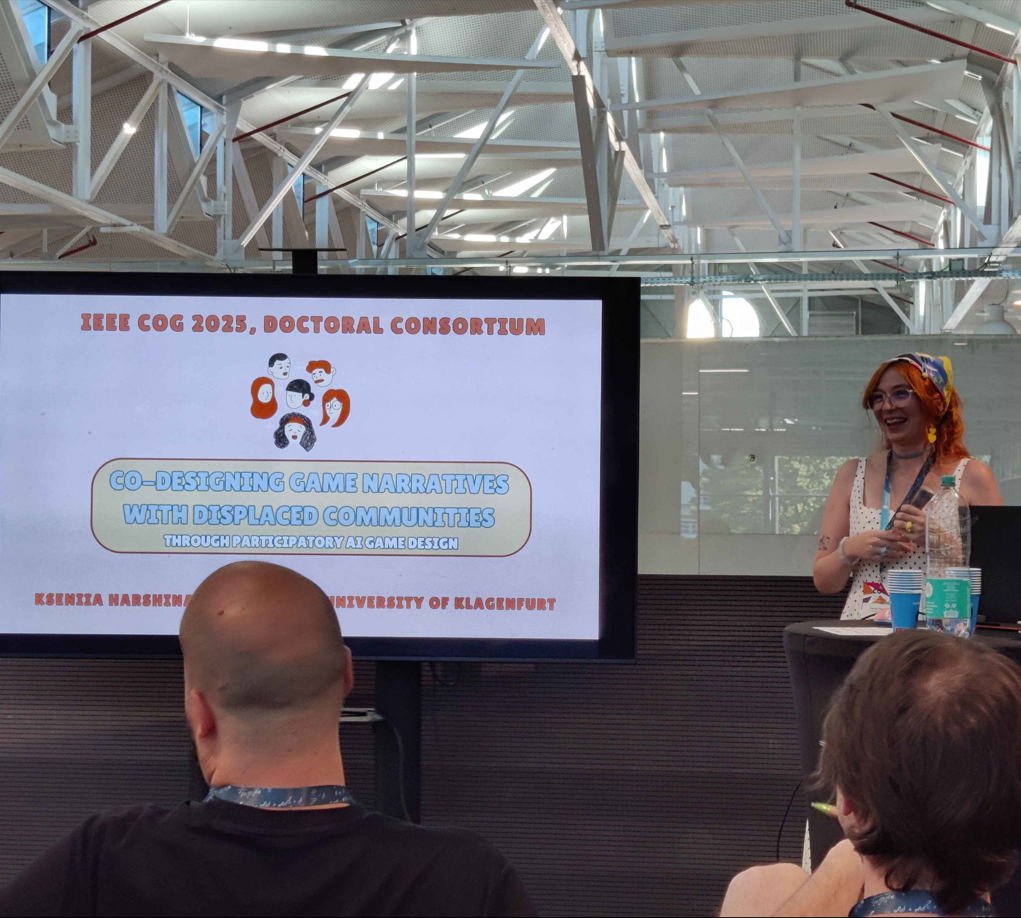Priv.-Doz. Farzad Tashtarian has been elevated to IEEE Senior Member in recognition of his contributions to multimedia streaming systems.
19 February 2026
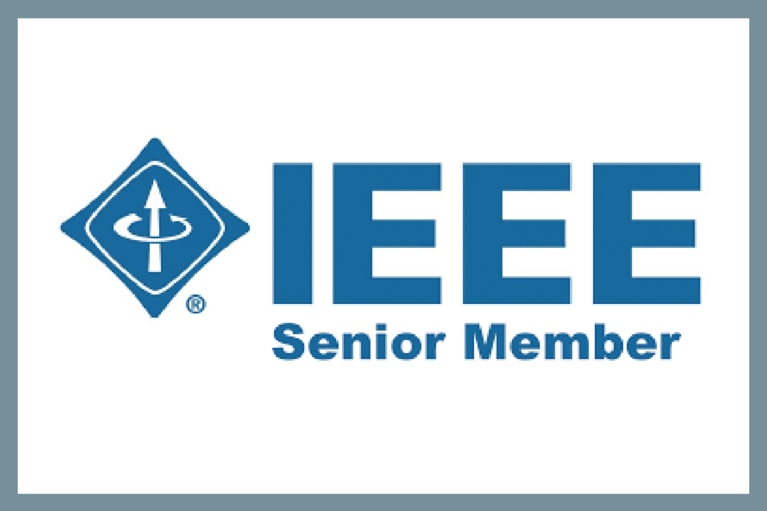
Priv.-Doz. Farzad Tashtarian has been elevated to IEEE Senior Member in recognition of his contributions to multimedia streaming systems.
19 February 2026

On 8 January 2026, Dr Felix Schniz held a guest presentation at the University of Graz. Invited by the Department of English, his talk focused on the narrative capabilities of video games:
Video Games as Storytelling Worlds
The capacities for narrative superstructures in video games are often depicted as being at odds with their elementary interactivity. From the game studies defining faux-skirmish between ludology and narratology, the question of spatial narrative capacities, and steadily refining perspectives on the literary purpose of video games, the central question remained ever the same: What is the connection between agency and the literary?
This lecture session explores the question in depth. It builds on an approximate definition of the multidisciplinary and complex medium to map its historical literary emancipation. Following this overview, concrete examples are used to evaluate the usage of literary key terminology for the analysis of video games. A distinct focus is set on the unique potential for interactive storytelling in video games.
December 19-21, 2025
Organized by: Tom Tucek, Patrick Mieslinger
With help from: Bodo Thausing, Kristell Potocnik, Agon Guri
With 63 participants and 15 submitted games, this year’s winter game jam has concluded just before the winter holidays.
Students, teachers, alumni, and even individuals not directly affiliated with the university came together to create new video games from scratch, all within a 48-hour time frame. The topic this time was “Resistance”.
A big thank you to everyone who participated or helped; you made this event a big success once again!
Please feel free to check out all the games here:
https://itch.io/jam/klujam-ws25
On 14.11.2025, Farzad Tashtarian defended his habilitation thesis “Network-Assisted Adaptive Streaming: Toward Optimal QoE through System Collaboration”
Congratulations!
Committee members:
Prof. Martin Pinzger (Chairperson), Prof. Oliver Hohlfeld (external member), Prof. Bernhard Rinner, Prof. Angelika Wiegele, Prof. Chitchanok Chuengsatiansup, MSc Zoha Azimi Ourimi, Dr. Alice Tarzariol, Kateryna Taranov, and Gregor Lammer
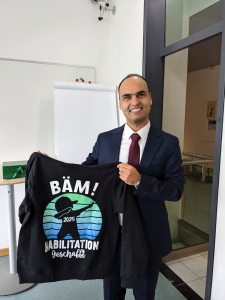
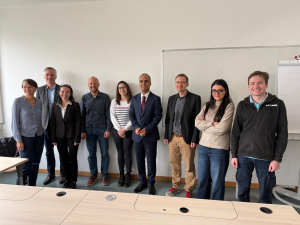
On 22 October 2025, Dr Felix Schniz opened the newly founded Media Club of AAU with a spectacular guest lecture. Founded by the Department of English, the Media Club has been installed to offer students an extracurricular and multidisciplinary journey through a leitmotif every semester. Starting with “Dystopia” in Winter 2025, Felix Schniz took the audience onto a journey through the video game “Hellblade: Senua’s Sacrifice” and reminisced on technological and psychological facets of game design.
We are happy to announce that our tutorial “Serverless Orchestration on the Edge-Cloud Continuum: From Small Functions to Large Language Models” (by Reza Farahani) has been accepted for IEEE/ACM UCC 2025, which will take place in Nantes, France, in December 2025.
Venue: IEEE/ACM International Conference on Utility and Cloud Computing (UCC) (https://ucc-conference.org/)
Abstract: Serverless computing simplifies application development by abstracting infrastructure management, allowing developers to focus on functionality while cloud providers handle resource provisioning and scaling. However, orchestrating serverless workloads across the edge-cloud continuum presents challenges, from managing heterogeneous resources to ensuring low-latency execution and maintaining fault tolerance and scalability. These challenges intensify when scaling from lightweight functions to compute-intensive tasks such as large language model (LLM) inferences in distributed environments. This tutorial explores serverless computing’s evolution from small functions to large-scale AI workloads. It introduces foundational concepts like Function-as-a-Service (FaaS) and Backend-as-a-Service (BaaS) before covering advanced edge-cloud orchestration strategies. Topics include dynamic workload distribution, multi-objective scheduling, energy-efficient orchestration, and deploying functions with diverse computational requirments. Hands-on demonstrations with Kubernetes, GCP Functions, AWS Lambda, OpenFaaS, OpenWhisk, and monitoring tools provide participants with practical insights into optimizing performance and energy efficiency in serverless orchestration across distributed infrastructures.
In July 2025, the ATHENA Christian Doppler Laboratory hosted four interns working on the following topics:
At the conclusion of their internships, the interns showcased their projects and findings, earning official certificates from the university. The collaboration proved to be a rewarding experience for both the interns and the researchers at ATHENA. Through personalized mentorship, hands-on training, and ongoing support, the interns benefited from an enriched learning journey. This comprehensive guidance enabled them to build strong practical skills while deepening their understanding of research methodologies and technologies in the video streaming domain. We sincerely thank both interns for their enthusiasm, dedication, and insightful feedback, which contributed meaningfully to the ATHENA lab’s ongoing efforts.
Leon Kordasch: “My internship at ATHENA was an incredibly valuable experience. The team was welcoming and supportive, and I especially appreciated the guidance of my supervisor, Mohammad Ghasempour, who did a great job explaining the theoretical background and technical concepts needed for my work. During my time there, I developed a high-quality and diverse 4K60 video dataset for applications such as AI training, real-time upscaling, and advanced video encoding research.”
Theresa Petschenig: “My four-week internship at ATHENA was a really enjoyable and meaningful experience. I worked on a project related to video generation and quality assessment, which allowed me to dive into some fascinating topics. I got a much better understanding of how AI-generated videos are created and evaluated, and what makes them look realistic. The internship gave me a perfect balance of practical work and learning new concepts. My supervisor, Yiying, was very nice and helpful throughout the internship. The atmosphere in the office was calm and welcoming, and the team was really friendly. I’m grateful for everything I’ve learned and for the chance to be part of such a supportive environment. This experience gave me both valuable knowledge and great memories.”
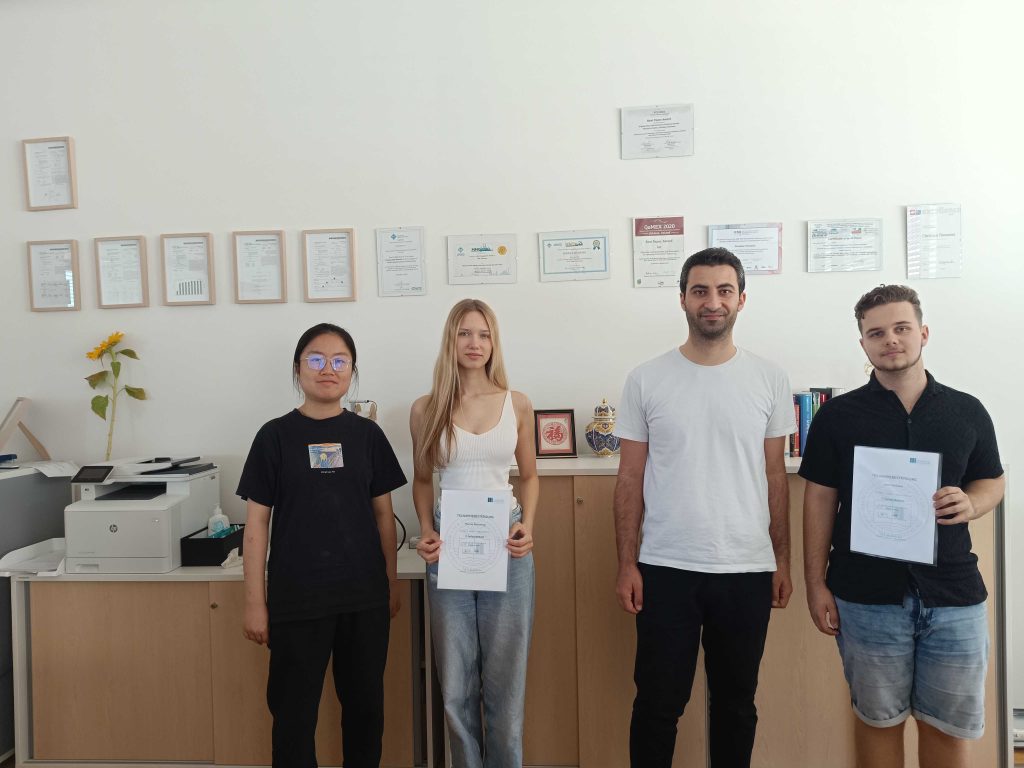
Kseniia, Felix, and Tom at Video Game Cultures 2025
Prague, Czech Republic, 10-12th September 2025
Kseniia, Felix, and Tom presented at the VGC 2025 in Prague. This academic research conference dealing with video games from a variety of different angles was also held in Klagenfurt two years ago, and is likely to be hosted here again in the near future.
Author: Kseniia Harshina
Title: Traces of Memory, Traces of Home: Trauma-Aware Environmental Storytelling in Games
Abstract: This presentation explores how game environments can function as emotional architectures, spaces that do not just represent trauma, but embody it. In particular, I examine how digital environments can reflect fractured relationships to memory, identity, and home. I propose a twofold approach: a critical reading of trauma in environmental storytelling, and a participatory design method grounded in co-creation and lived experience.
First, I examine how games such as Silent Hill 2 use space to externalize grief, memory, and emotional fragmentation. These environments are not just settings, they are structured by loss. They invite players to navigate emotional landscapes through movement and embodiment, instead of exposition.
Second, I reflect on my research-creation work with people who have experienced forced migration, in which we co-design adaptive environments that shift in response to memory, emotion, and identity. I would like to introduce a dual-role framework: Survivors, who shape and embed memory traces into environments; and Witnesses, who explore these spaces with limited agency. This distinction reflects different relationships to trauma: those who have lived it, and those invited to listen. This model invites reflection on authorship, the emotional labor of sharing trauma, and the ethics of game design. It also challenges dominant design assumptions, suggesting that withholding agency can be a powerful act of care. This work argues that trauma-aware environmental storytelling offers a way to reimagine home, not as a static setting, but as a shifting, layered space where pain and longing coexist.
Ultimately, this approach makes space for grief and displacement not just thematically, but architecturally. What remains are not just spaces, but traces, of memory, of home, of stories that ask us to listen more deeply to others, and to the pasts we carry with us.
Author: Felix Schniz
Title: In Cardboard Space, No One Can Hear Your Scream The Alien Universe Between Digital and Analogue Game Experiences
Abstract: The science-fiction horror that began with Alien (Scott 1979) has long since evolved into a transmedia universe spanning a diverse set of media artefacts (cf. Heinze 2019). Its unique selling points – dark, confined environments and the clearly defined protagonist/antagonist conflict of alien Xenomorphs and human Colonial Marines taking place within them – make the setting an especially favourable topic for game adaptations. Intense digital survival horror games, such as Alien: Isolation (Creative Assembly 2014), have received a fair share of
academic attention in game studies (cf. Švelch 2020). Analogue Alien games and their unique mechanic potential on environmental storytelling, however, yet deserve more attention. In my talk, I focus on the analogue interpretations of the Alien universe and how they differ from the digital. I identify the opportunities and demands of digital and analogue game spaces that capture the essential experience the universe provides – a storytelling world deeply laden with political, gothic, and evolutionary horrors – and illustrate their manifestation in twodimensional cardboard and table spaces.
After introducing the universe and the parameters for game design set by its pivotal spaces, I establish a dialogue between spaces of play and represented spaces. Relying on the foundational works on transmedia adaption theories (cf. Hutcheon 2006 and Rauscher 2012), cross-sectioning them with environmental storytelling concepts (cf. Rauscher 2015) and a look at horror in gaming (Perron 2018), I provide an overview of key Alien game adaptations, analysing how said parameters define game mechanics. I focus on the differences in how digital
interfaces and systems, as seen in video games such as the already mentioned Alien: Isolation or the recent Aliens: Dark Descent (Tindalos Interactive 2023), compare to the material and social interactions demanded by analogue forms. These observations include rarely discussed works such as the Aliens Predator Customizable Card Game (Ackels et al. 1997), the tabletop war game Aliens Vs Predator: The Hunt Begins (Ewertowski and Olesky 2015), and the board game Aliens: Another Glorious Day in the Corps (Haught 2020).
My outcome is a nuanced understanding of how analogue games adapt an established cinematic universe/environmental storytelling world, revealing specific design strategies employed to evoke shared yet medium-specific, universe-encapsulating space. I ultimately offer insights for debate into the mechanic translation required for cross-platform IP adaptation.
Author: Tom Tuček
Title: The Costs of Generative AI in Video Games: Using Locally-Running Models for Sustainability
Abstract: Generative AI is reshaping video game worlds by providing developers and designers with quick and easy access to assets, as well as by allowing for the dynamic creation of environments, dialogue, and narrative during gameplay. While generative AI brings increased potential for creativity and accessibility, it also brings many new issues and questions. We highlight the ethical implications and problems of AI-native games (video games using real-time generative AI as a core part of their design) by focusing on their environmental impact.
Following a short discussion on the ethics of generative AI, we frame the topic within the ongoing climate crisis and investigate the energy demands of models used for and within video games. By comparing the costs of various approaches, we highlight the potential for the use of smaller models in video games, which can run on local end-user machines, such as PCs or game consoles, while using less power. This approach also helps with other issues, such as online dependency and data privacy.
To ground these arguments, we present a case study of our game, One Spell Fits All, an AI-native video game prototype that runs offline on consumer laptops. Preliminary findings show the potential of this approach, showcasing reduced energy consumption while maintaining a high-quality game experience.
Based on these critiques and findings, we propose guidelines for more responsible AI-native video game design, such as prioritizing low-power models and client-side inference, selecting appropriate models for each task, and monitoring the energy consumption of games during the development process.
By looking at AI-native games through the lens of climate ethics, this work contributes to our understanding of the novel field of generative AI in games while also offering best practice approaches for designers, developers, and players committed to greener virtual worlds.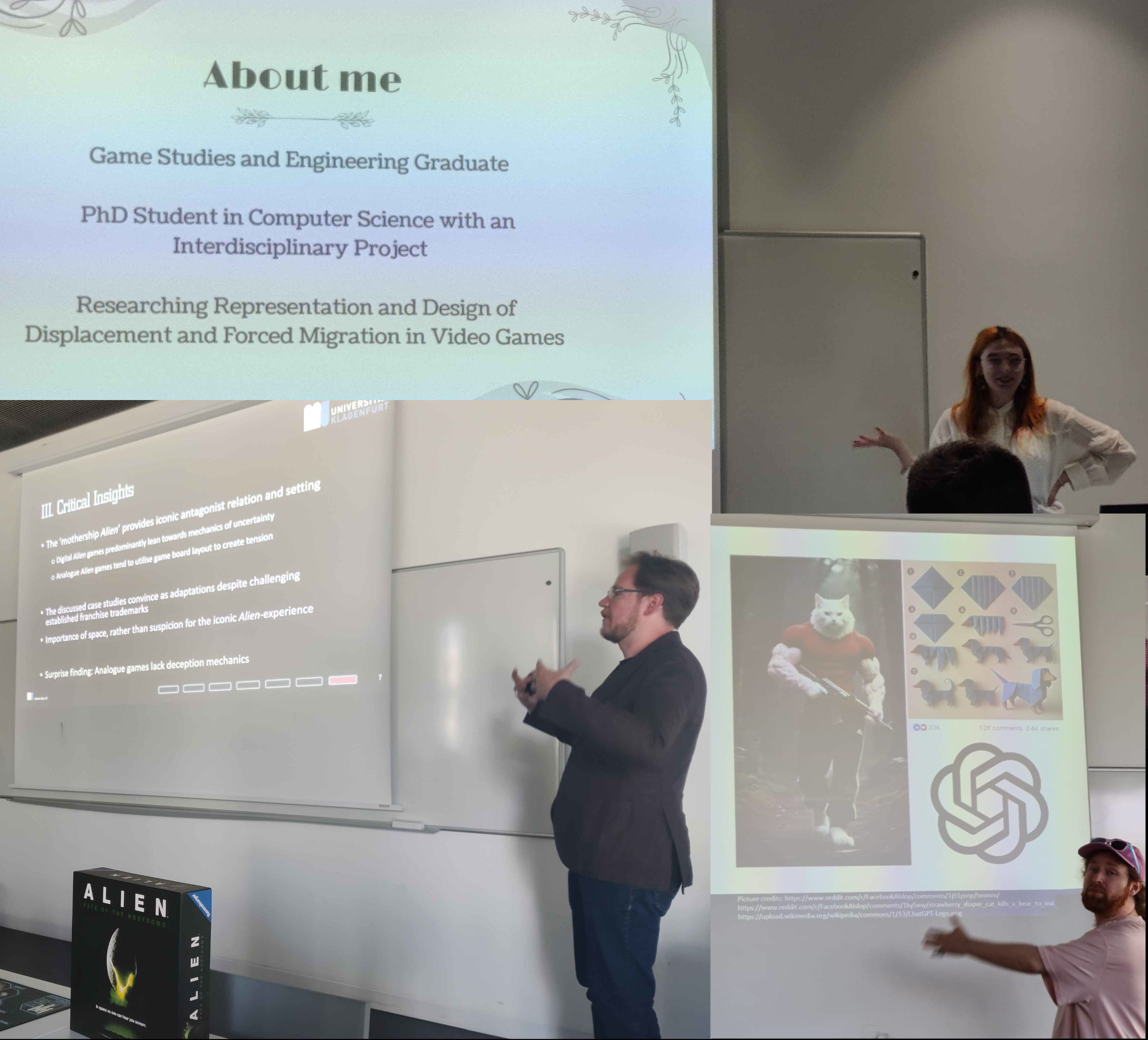
In Lisboa, Portugal, 26-29th August, 2025
Author: Tom Tucek
Title: Using Large Language Models to Create Meaningful and Dynamic Interactions in Serious Game Contexts
Abstract: Video games have become the most successful entertainment medium, both in terms of financial success and as a carrier of modern culture. At the same time, recent trends in generative artificial intelligence (AI), particularly large language models (LLMs), are bringing about a paradigm shift in how humans interact with games and computers in general. The unpredictability of generative AI has already been utilized to create fun experiences within games, but the same aspect makes it difficult to use in serious contexts (e.g., games dealing with minority status), where unwanted output can potentially cause harm. This doctoral research proposes to find out how LLMs can be used in video games with serious contexts to create and enhance meaningful experiences. Following design science principles, role-playing game (RPG) prototypes that utilize this new technology and deal with serious topics are created and tested for their efficacy in terms of user engagement, narrative coherence, and lasting impact (e.g., changed views or behavior after extended periods of time). Iterative development and validation, through user tests and heuristic evaluations, ensure that the created video game prototypes have the desired effects and findings are incorporated into a framework, which in turn is validated in a long-term study. Other aspects, such as data privacy and latency, are also addressed by focusing on the local deployment of AI models, instead of cloud-based services. The main contribution of this research is a framework that improves the reflected use of generative AI in video games, increasing narrative coherence and player engagement while enabling the creation of games that allow for meaningful, personalized, and dynamic experiences.
In Lisboa, Portugal, 26-29th August, 2025
Author: Kseniia Harshina
Title: Developing a Video Game for Empathy and Empowerment in the Context of Forced Migration Experiences
Abstract: This dissertation explores how video games can be designed to foster empathy and empowerment in the context of forced migration. While existing games often focus on raising awareness, they frequently exclude displaced individuals from the design process. To address this, the project proposes a participatory, AI-assisted storytelling system that allows people with lived migration experience to co-create and replay interactive scenes based on personal memories.
The research follows a three-phase structure: data collection through surveys and a participatory game jam; iterative development of an interview-to-game prototype using a locally run large language model (LLM); and a mixed-methods evaluation. The system includes an interview-based chatbot interface, automatic scene generation, and post-game reflection tools. The evaluation examines the system’s emotional, psychological, and representational impact across three player groups: scene authors (migrant participants), other displaced individuals, and players without migration experience.
The project contributes to generative AI research, HCI, and game studies by combining participatory design, storytelling, and technical implementation. It offers both a theoretical framework and a functional prototype to inform future practices in socially responsive game design.
